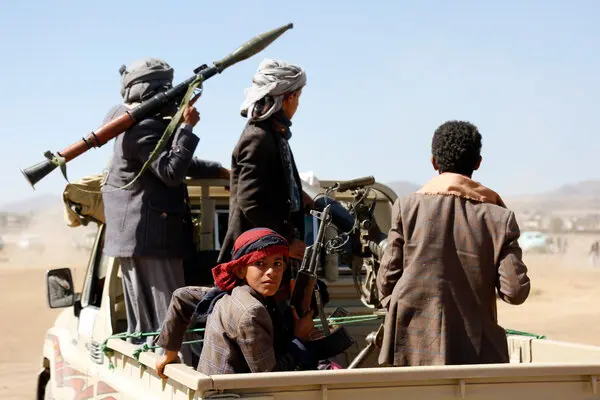In response to the repeated Red Sea attacks by Iran-backed Houthis, the United States and Britain conducted air strikes, hitting 36 Houthi targets across 13 locations in Yemen. The strikes come after a drone attack in Jordan killed three U.S. soldiers, prompting retaliatory action against Iran-linked targets in Iraq and Syria. This marks the third joint effort by British and American forces targeting the Houthis, with the objective of disrupting their capabilities and preventing further attacks on international and commercial shipping in the Red Sea.
The air strikes, which aimed to disrupt and degrade the Houthi militia’s capabilities, targeted deeply buried weapons storage facilities, missile systems and launchers, air defense systems, and radars. U.S. Defence Secretary Lloyd Austin emphasized that the action was in response to the Houthis’ reckless and destabilizing attacks, asserting that the strikes were intended to deter future aggression.
The Houthi military spokesman, Yahya Saree, confirmed that the capital Sanaa and other rebel-held areas were targeted with a total of 48 air strikes. Despite the attacks, Saree asserted the Houthis’ unwavering support for the Palestinian people in the Gaza Strip, emphasizing that the strikes would not deter them from their stance. He warned that the latest strikes would prompt a response and punishment.
Britain’s defence ministry reported that Royal Air Force Typhoon warplanes participated in the strikes, hitting targets that included two ground control stations used to operate attack and reconnaissance drones. The coordinated efforts by the U.S. and the UK underscore their commitment to curbing Houthi aggression and maintaining security in the region.
The U.S. Central Command (CENTCOM) revealed that its forces carried out a strike against a Houthi anti-ship missile that was preparing to launch against ships in the Red Sea. This action aimed to prevent potential threats to maritime traffic in the strategic waterway.
The Houthis’ attacks have not only drawn the attention of the U.S. and the UK but have also led to disruptions in global trade. The Houthis, expressing solidarity with Palestinians in Gaza, have escalated tensions in the Red Sea, prompting international responses to safeguard shipping lanes and maintain regional stability.
The ongoing conflict in Yemen, with Houthi rebels backed by Iran, has created a complex geopolitical scenario. The recent air strikes signal the international community’s resolve to address the threat posed by the Houthis and protect vital maritime routes. As tensions persist, the situation remains fluid, with the potential for further escalations and responses in the region. The global community will closely monitor developments in Yemen to assess the impact on regional stability and security.













